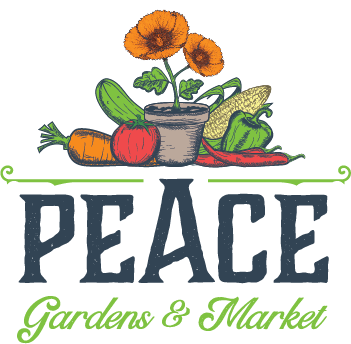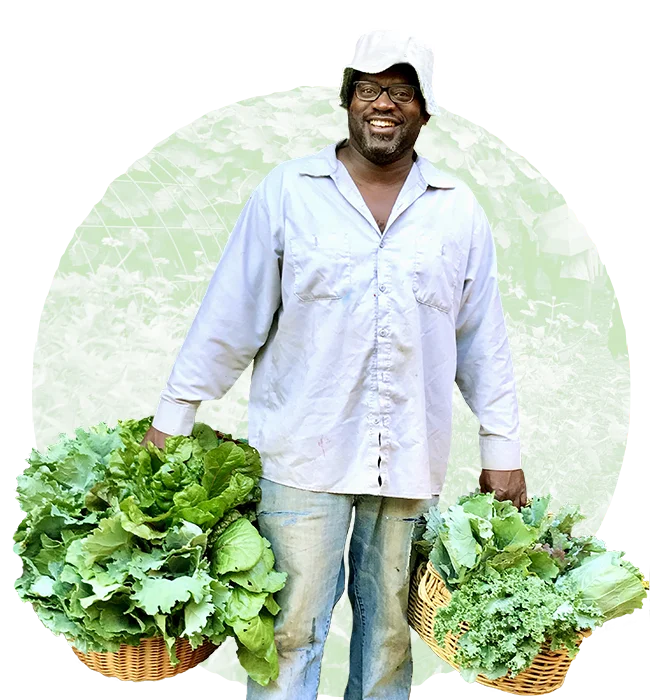
Growing gardens, cultivating community, transforming trauma.
The Peace Gardens are a destination where community is built. Building on the agricultural and entrepreneurial legacy of E.W. Pearson, the founder of the historically African American Burton Street Community were the gardens are located, we have cultivated a creative commons focused on art, environmental stewardship, and social enterprise. The gardens are home to vegetable beds, native plants, multiple art installations, performance areas, a library/classroom, outdoor oven, greenhouse, micro-store, maker spaces, and more. The space has given birth to multiple enterprises, including local businesses and non-profits. We believe that a thriving community depends on all of us, so we engage youth, elders, neighbors, and visitors in the mission of creating a culture of sustainability that’s inclusive and just.
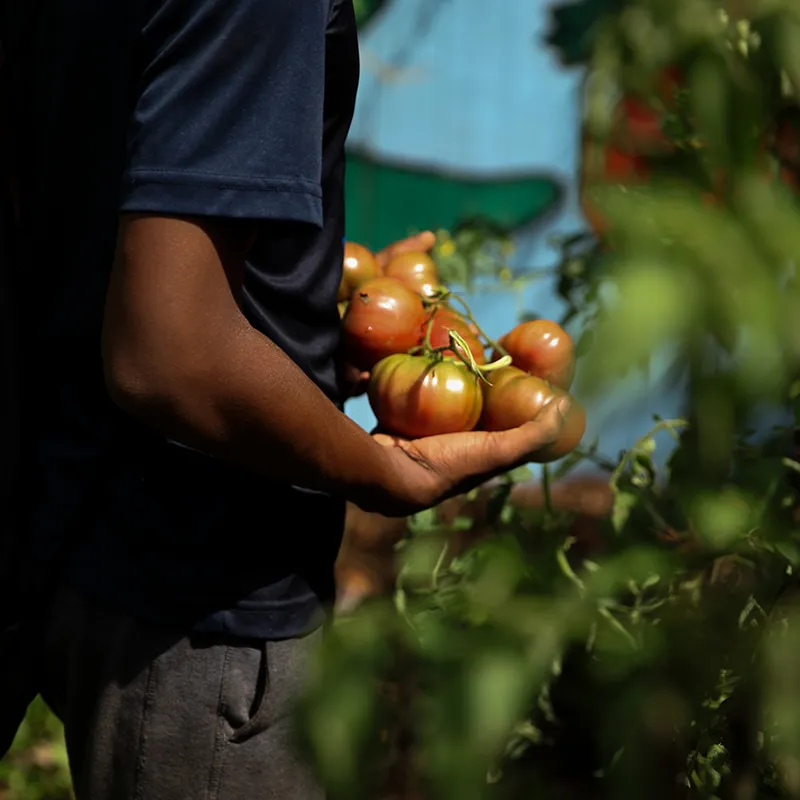
Mission
The Peace Gardens is a destination where community is built – a place where we learn, grow, build, create, and heal together.
Vision
To create a culture of sustainability that is inclusive and just – where play and work are equal, where trauma is transformed, where the world is inspired, and love is expanded.
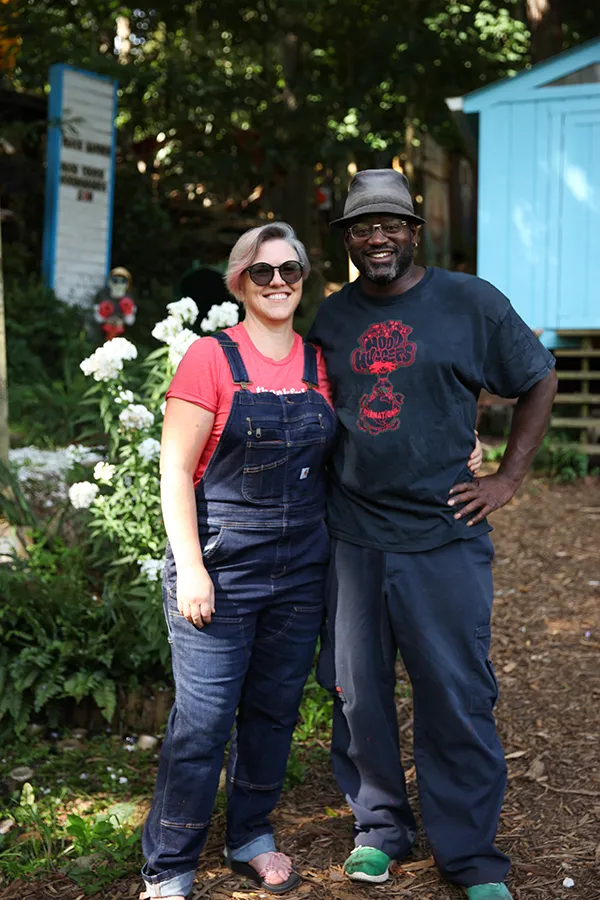
Our Story
We are husband and wife collaborators, DeWayne “B Love” Barton and Safi Martin. Our family has lived in the Burton Street Community for 4 generations.
The Peace Gardens are situated on the side of a hill in the heart of West Asheville in the Burton Street Community, a historically African American neighborhood established in the early 1900’s by community leader, Edward Walton Pearson, Sr. The gardens stand and build on his legacy of entrepreneurship and community pride.
In 2003, as the nation clamored to our 2nd war in Iraq, the Burton Street neighborhood worked to recover from the recurring trauma of the war on drugs. Neighborhood residents were afraid to come out of their homes. Though we could not stop the war in Iraq, we could do our small part to increase the peace within our own neighborhood – and thus the Burton Street Community Peace Gardens were born.
So, we went on the hunt for a vacant lot in our neighborhood and discovered the perfect overgrown lot right behind our little bungalow. At the time we were renting the bungalow from DeWayne’s uncle, Fred Barton, who also owned the vacant lot. He generously agreed to a community garden in exchange for homegrown tomatoes. We have since purchased the property and, with countless other volunteers, youth, artists, and artisans, have transformed it into what has become the Peace Gardens – a community haven filled with art, native plants, a performance stage, fire pit, outdoor oven, greenhouse, library, hands-on learning lab, and food garden.
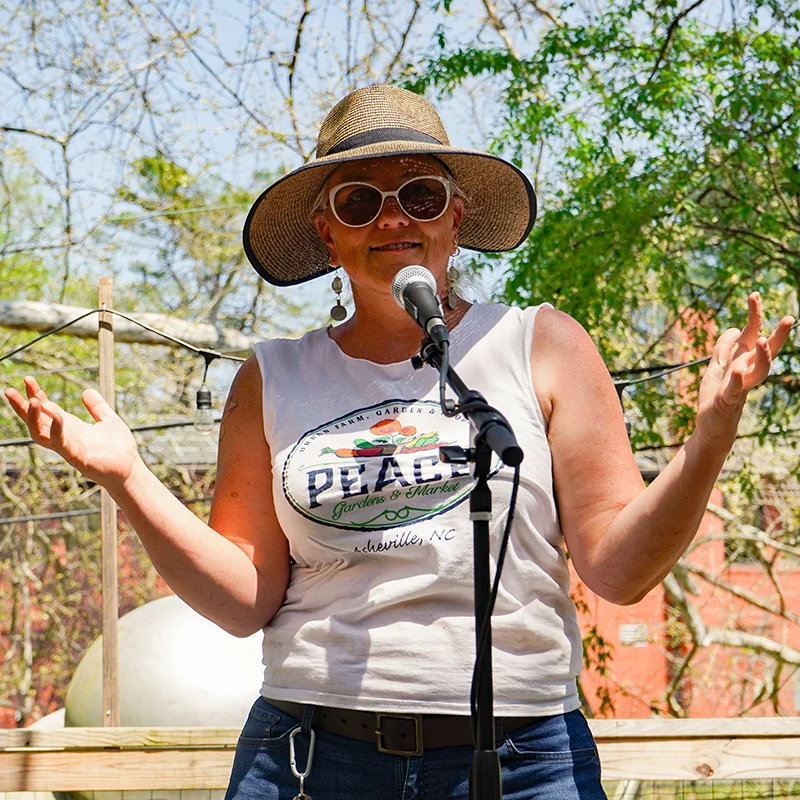
Safi
My heritage is farming and gardening – more specifically, North Carolina farming as far back as we can trace. From my childhood on the farm to today, I’ve always gardened wherever I’ve lived. I know the power of growing our own food – no cash register at the end of the row, eating food right off the vine in the garden (still warm from the sun!), sharing the harvest with friends and neighbors, getting creative in the kitchen, and developing new recipes for using and preserving the harvest. In 2000, to address food security in Asheville, I helped co-found Bountiful Cities. And, as a mental health professional, I also know the power of gardens to heal and restore, to transform a wounded spirit and bring us home to ourselves.
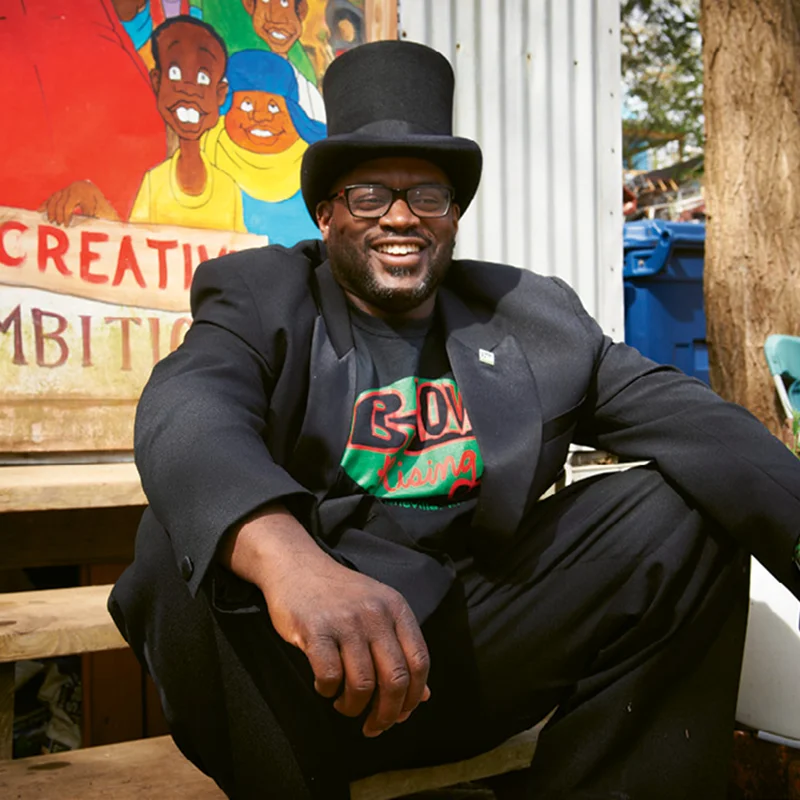
DeWayne
I’m still chasing the memories of my childhood – when community members created opportunities and showed consistent patterns of support to not only the young people, but the entire community. It was an extended family. That support came in the form of their time: always volunteering a encouraging word; their treasure: only given for report cards, odd jobs and running errands; and finally, their talent: I can recall countless days of elders sharing their skillset to all those who would listen. Growing up with a father who was very active in the Washington DC area gave me another example of helping others and the daily maintenance communities sometimes need. Since that time, I’ve always been drawn to grassroots leaders that use what they have to improve their environments. No matter where I was in the world, I sought out these leaders and I was always a UI (under instruction). It wasn’t until I moved back to Asheville that I felt forced to step up into a leadership role of helping to transform my neighborhood. What started with picking up garbage led to the co-founding of Green Opportunities and the creation of Hood Huggers International.
